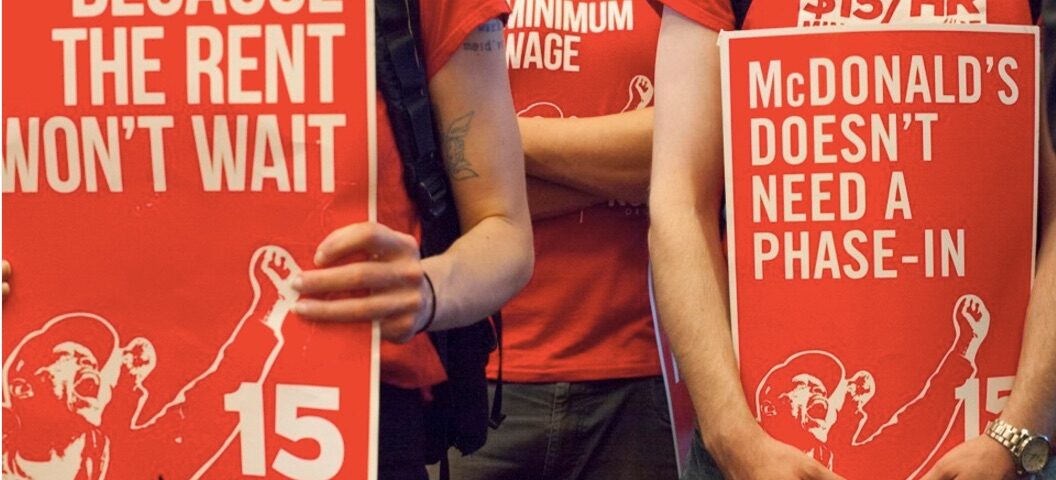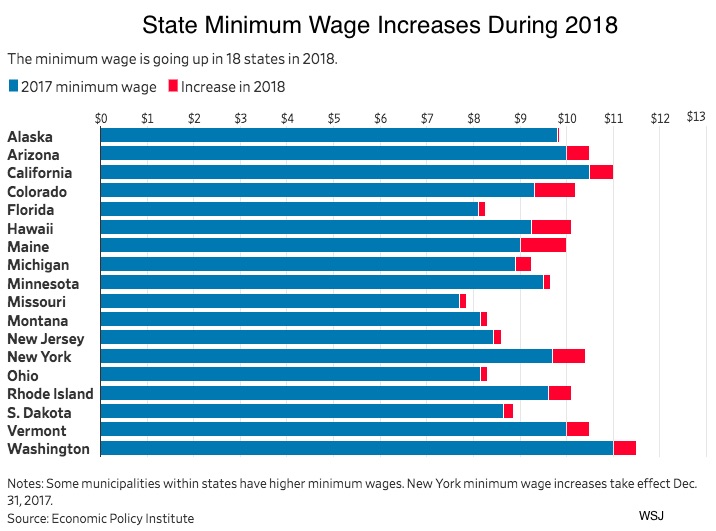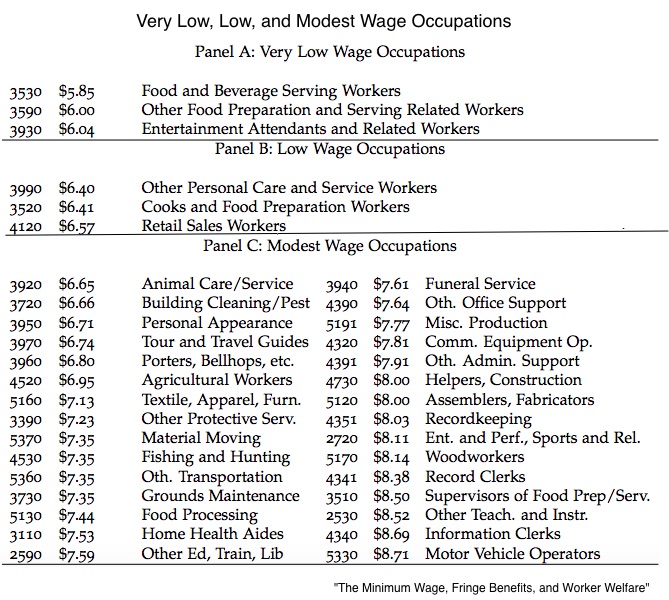
The U.S. Army’s War Against the Vegas Golden Knights
May 28, 2018
How Certain Central Bankers Became More Friendly
May 30, 2018New Jersey’s new governor (my home state) has promised a 4-year gradual phase-in of a $15 hourly minimum wage. Currently at $8.60, his 2019 goal is $11. If passed, the governor says he will “boost the incomes of 1.2 million New Jerseyans.”
Seventeen other states have similar objectives:
But two recent studies indicate it’s not quite that simple.
Minimum Wage Spillovers
Healthcare
According to new research using ACS (American Community Survey) data, a higher minimum wage could lower workers’ non-wage compensation. Spotlighting employer provided healthcare coverage, the study covered 2011 to 2016.
For the lowest wage earners, they presented three categories:
The researchers observed that when the minimum wage went up, employer provided healthcare coverage went down. If the “Very Low” wage workers got a $1 increase, then it meant an annual average of $860 extra. At the same time though, they lost the equivalent of $75 in health coverage. Similarly, the “Low” wage and “Modest” wage earners had their gain from the higher minimum wage offset by less employer provided healthcare coverage. If you were in the “Modest” wage group, your average annual earnings rose $123 but you lost $70 in healthcare coverage.
Their summary conclusion? When wage gains increase worker welfare, non-cash payments decrease it.
Job Losses
In 2014, Seattle’s Minimum Wage Ordinance established a schedule for the minimum wage to rise. Climbing to $11 in 2015 and then $13 in 2016, the top is $15. Again using government data, scholars from the University of Washington assessed the impact of Seattle’s minimum wage hike.
Their conclusions? Lower wage workers were losing jobs.
The average pay was up for low wage workers but there were fewer jobs and shorter hours for those who kept their jobs. Specifically, hours for low-skilled workers were down by 9.4% when the minimum wage rose to $13. At the same time, there were 5,000 fewer low wage jobs, a 6.8% drop.
Our Bottom Line: Tradeoffs
As economists, we can say that a higher minimum wage requires tradeoffs. When it is associated with uninvolved third parties like “Modest” wage earners, the higher minimum wage can mean less healthcare coverage or job losses.
So, when my governor says he will help 1.2 million workers, he is not expressing the entire story. We also need to know the tradeoffs.
My sources and more: Thanks to marginalrevolution for alerting me to this new paper. that reminded me of the University of Washington study. From there, we just needed the ideal complement from WSJ for a factual update and the Washington Post for the most insight.
Please note that we looked at the University of Washington study in a past econlife.
![econlifelogotrademarkedwebsitelogo[1]](/wp-content/uploads/2024/05/econlifelogotrademarkedwebsitelogo1.png#100878)






